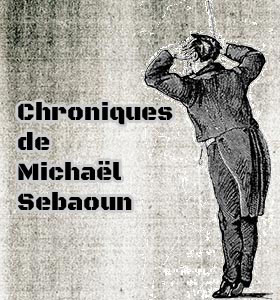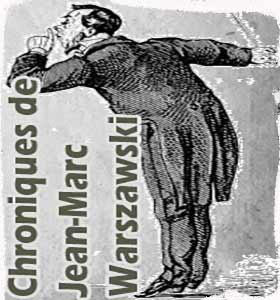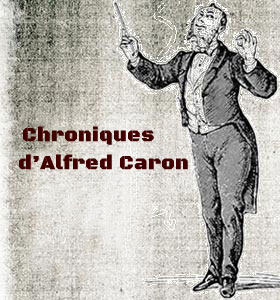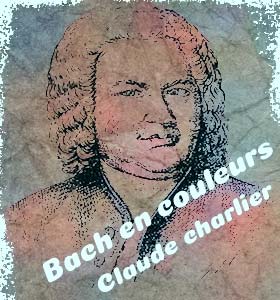Current research on jazz (6) Research in and on the French-speaking area
6-8 May 2026, Liège
Call for papers – Study days‘
The sixth edition of the study days ‘Actualité de la recherche sur le jazz’ (Current research on jazz), launched in 2015, will be hosted at the University of Liège (Belgium) from 6 to 8 May 2026, in partnership with the Maison du Jazz de Liège et de la Communauté Française de Belgique, and IReMus (Sorbonne Université).
These study days have several aims:
Developing a network of researchers interested in jazz, whether they are French-speaking, working in French-speaking institutions or in countries where French is currently or historically used, or working on topics related to jazz in the French-speaking area
Providing members of this network with an opportunity to present their current or recently completed research
Fostering dialogue between disciplines (musicology, cultural history, theatre studies, sociology, philosophy, gender studies, artistic research…) in the field of jazz studies
Supporting PhD students and early career researchers to undertake work on jazz
Developing collaborations between academia and the jazz world (musicians, educators, collectors, producers…).
Proposals may address any topic related to jazz, without any chronological, geographical, aesthetic, discipline-specific or methodological restrictions. Contributions which fit within the thematic sessions ‘Jazz and the French-speaking area’ (see description below) are particularly welcome.
Practical information:
Presentations, in French or English, should be 20 minutes long (followed by 10 minutes of discussion). Researchers are invited to send their proposals as an abstract (250 words) accompanied by a short personal biography (150 words) to
martin.guerpin@gmail.com and apiret@uliege.be before 15 October 2025.
Thematic sessions ‘Jazz and the French-speaking area’
In the history of jazz, the French-speaking area, as many others, has made its own contributions, both at the heart and on the fringes of the traditionally US-centred canon. In addition to aesthetic contributions sometimes perceived as original (e.g., the music of the Quintette du Hot Club de France), these diverse regions have produced many notable musicians (Rabih Abou-Khalil, Manu Dibango, Daniel Humair, Bobby Jaspar, Nathalie Loriers, Grégoire Maret, Cécile McLorin Salvant, Mimi Perrin, Michel Petrucciani, Michel Portal, Django Reinhardt, Martial Solal, Toots Thielemans, René Thomas, Sonny Troupé, Erik Truffaz, and Karim Ziad, to name but a few). Quite early on, some countries (France, Switzerland, Belgium) established themselves as a French-speaking area extending beyond national borders, notably through a network of institutions (hot clubs, amateur tournaments), critics and journals (Jazz Hot and Music, for example) promoting cross-border artistic collaborations. The contribution of the French-speaking world to the emergence of jazz festivals is also worth noting: Nice (1948), Paris (1949), Comblain-la-Tour (1959), Juan-les-Pins (1960), Montreux (1967), Montréal (1980), Jazz au Chellah (1996), and Dakar-Gorée (2015).
Beyond these specific considerations, these thematic sessions aim to stimulate reflection on how a language (in this case French) and the geographical and cultural area that emanates from it can play a structuring role (sometimes as a vehicle, sometimes as a barrier) in the history of jazz. Although jazz is often depicted as transcending linguistic, political and cultural boundaries, its existence and historical evolution cannot be understood without considering its relationship with languages and linguistic areas, whether in terms of circulation, mediation, knowledge production or reception. Indeed, the current hegemonic status of English as the lingua franca of jazz tends to overshadow some less homogeneous realities and historical contexts.
In order to shed light on these realities and contexts, the scientific committee welcomes proposals for papers that address one or more of the following sub-themes:
French-speaking area, knowledge circulation and historiography. This sub-theme examines the role of French-speaking networks (with their centers and peripheries) in the circulation of knowledge about jazz, from the perspective of critics and the music press (since the early 1920s) but also of the academic world and music education institutions. On the other hand, it is worth questioning the possible specificity (beyond the phenomena of acculturation to American jazz, which we obviously don't want to deny) of this critical, academic and pedagogical knowledge, with regard to other critical or academic traditions, notably Anglophone.
French-speaking area and musicians circulation. This sub-theme questions the structuring, or at least facilitating, role (e. g., from the 1920s onwards, between France and Belgium) of the linguistic community in the development of artistic and educational collaborations, in the professional trajectories (careers) of French-speaking jazz musicians, but also in the programming of festivals and the talent scouting of recording labels.
French-speaking area and stylistic circulation. Jazz itself emerged from a fusion of multiple musical traditions and has continued to evolve through stylistic encounters and/or new appropriations. This sub-theme will study the structuring role of the French-speaking area in certain encounters and appropriations (particularly with musical traditions from French-speaking regions of Africa, the Mediterranean zone and the West Indies).
Francophonie and vocality. While jazz was not born ‘speaking French’, some aesthetic and commercial reasons led to the development of a French-language vocal jazz. This sub-theme will explore issues related to attempts to adapt French to swing, the development of vocal styles offering other types of prosody, and, more generally, the relationship between jazz and French-language song.
We look forward to receiving your submissions!
The Organising Committee
Martin Guerpin (Sorbonne Université), Matthias Heyman (Vrije Universiteit Brussel/Koninklijk Conservatorium Brussel), Christophe Pirenne (Université de Liège), Alexandre Piret (Université de Liège/Vrije Universiteit Brussel/FRS-FNRS).




 À propos - contact |
S'abonner au bulletin
| Biographies de musiciens | Encyclopédie musicale | Articles et études | La petite bibliothèque | Analyses musicales | Nouveaux livres | Nouveaux disques | Agenda | Petites annonces | Téléchargements | Presse internationale | Colloques & conférences | Collaborations éditoriales | Soutenir musicologie.org.
À propos - contact |
S'abonner au bulletin
| Biographies de musiciens | Encyclopédie musicale | Articles et études | La petite bibliothèque | Analyses musicales | Nouveaux livres | Nouveaux disques | Agenda | Petites annonces | Téléchargements | Presse internationale | Colloques & conférences | Collaborations éditoriales | Soutenir musicologie.org.
Musicologie.org, 56 rue de la Fédération, 93100 Montreuil. ☎ 06 06 61 73 41.
ISSN 2269-9910.

Vendredi 22 Août, 2025

 22 août 2025
22 août 2025